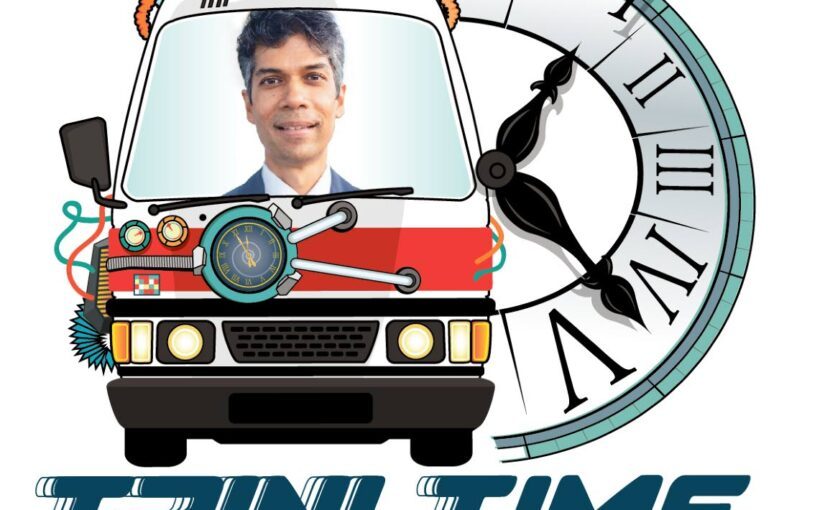The Union Minister for Higher Education in India started a political debate by suggesting the renaming of Ravenshaw College and University in...
Vous n'êtes pas connecté
- English
- Français
- عربي
- Español
- Deutsch
- Português
- русский язык
- Català
- Italiano
- Nederlands, Vlaams
- Norsk
- فارسی
- বাংলা
- اردو
- Azərbaycan dili
- Bahasa Indonesia
- Հայերեն
- Ελληνικά
- Bosanski jezik
- українська мова
- Íslenska
- Türkmen, Түркмен
- Türkçe
- Shqip
- Eesti keel
- magyar
- Қазақ тілі
- Kalaallisut ; kalaallit oqaasii
- Lietuvių kalba
- Latviešu valoda
- македонски јазик
- Монгол
- Bahasa Melayu ; بهاس ملايو
- ဗမာစာ
- Slovenščina
- тоҷикӣ ; toğikī ; تاجیکی
- ไทย
- O'zbek ; Ўзбек ; أۇزبېك
- Tiếng Việt
- ភាសាខ្មែរ
- རྫོང་ཁ
- Soomaaliga ; af Soomaali
Rubriques :
 Maroc - EURASIAREVIEW.COM - A la une - 13/Jul 22:47
Maroc - EURASIAREVIEW.COM - A la une - 13/Jul 22:47
Morbid Symptoms Of Hindutva Politics – OpEd
The recent decline in the BJP’s seat numbers in the Indian parliament, along with their electoral losses in the latest bypolls, indicates a diminishing marginal utility of Hindutva politics. The defeats in significant temple towns such as Badrinath and Ayodhya suggest that Hindutva is losing its political currency. The strategy of majoritarian mobilisation and the consolidation of Hindu votes in the name of religion and nationalism are no longer yielding political dividends. This shift can be attributed to the deteriorating living standards and material conditions of the working people, which are overshadowing religious and nationalistic appeals in everyday life. The widespread disenchantment with Mr. Modi and the BJP government is evident, but the morbid symptoms of Hindutva politics in elections do not mean that the Indian ruling and non-ruling elites have abandoned their consensus on the dominant narratives of Hindutva politics. This dissatisfaction is evident in various public opinion polls, social media discussions, and grassroots movements that highlight the growing discontent with the Hindutva model of politics, policies and governance. Despite this, the persistent and powerful presence of Hindutva politics in different regions indicate that the Indian ruling and non-ruling elites have not entirely rejected the dominant narratives associated with Hindutva ideology. Hindutva, which advocates for the primacy of Hindu culture and identity in India, continues to shape political discourse and influence voter behaviours significantly but upholds the interests of crony capitalists. The ruling elites, comprising political leaders, influential business magnates, and media moguls, often find themselves aligned with or at least sympathetic to the Hindutva agenda. This alignment is driven by a variety of factors, including the assured and insured political and economic benefits of supporting a narrative that resonates with a substantial segment of the electorate. Similarly, the non-ruling elites, which include intellectuals, academics, lawyers, doctors, civil society members and certain segments of the opposition, also grapple with the pervasiveness of Hindutva narratives. While some vocally oppose it, others might adopt a more cautious approach, acknowledging its impact on the sociopolitical landscape and sometimes strategically engaging with it to advance their own agendas. While the visible discontent with Mr. Modi's leadership and the BJP government signifies a critical juncture in Indian politics, it does not necessarily translate into a complete departure from the entrenched narratives of Hindutva politics among the elites and even among working masses. The influence of these narratives remains robust, shaping the contours of political strategy and public discourse in contemporary India. The morbid symptoms of Hindutva reflect the weakening of Hindutva politics, but this alone is not a sufficient condition for the complete defeat of the reactionary Hindutva ideology. While there are clear indications of its diminishing influence, a more comprehensive approach is needed to address and counteract the ideological and cultural underpinnings that sustain it. The current morbid political conditions in Indian election results highlight a significant rift between the ruling ideology of Hindutva and the working masses. This disconnect underscores the growing dissatisfaction among the people with the policies and rhetoric associated with Hindutva, which pretends to prioritise a Hindu-centric national identity often at the expense of economic and social inclusivity of the Indian masses. This rift is not just a symptom of discontent but also a potential catalyst for meaningful political change. The palpable disillusionment with Hindutva politics among the working class and other marginalised communities offers a unique political opportunity. It is a moment ripe for the emergence of alternative political movements that can advocate for and implement a radical transformation of Indian society. Such a transformation would involve addressing the underlying socio-economic inequalities and injustices that have been exacerbated by the current political climate. It would necessitate a shift towards inclusive policies that prioritise the needs and aspirations of the working masses, irrespective of their religious or cultural backgrounds. In order to seize this opportunity, progressive political forces need to articulate a clear and compelling vision for India’s future. This vision should be grounded in principles of social justice, economic equity, and democratic participation. It should challenge the divisive narratives of Hindutva by promoting unity and solidarity among diverse social groups. Historically, morbid conditions in politics often give rise to fascist and authoritarian regimes. If democratic, left, socialist, liberal, and progressive forces do not combat Hindutva with a viable political, economic, and cultural alternative, the current morbid symptoms in politics can transform itself as an imminent crisis. This crisis has the potential to empower Hindutva forces once again, leading to the consolidation of Hindutva fascism in India. Therefore, it is crucial for these diverse groups to unite and present a cohesive and compelling vision that addresses the needs and aspirations of the working masses, countering the reactionary ideology with progressive and inclusive policies. Moreover, this alternative politics must be grassroots-driven, empowering local communities to actively participate in the democratic process. By fostering a culture of civic engagement and political activism, it is possible to build a broad-based movement capable of challenging the status quo and bringing about lasting social change. The current political climate, marked by a rift between Hindutva and the working masses, presents a critical juncture. It is an opportunity to envision and strive for a radically transformed Indian society, one that is more just, equitable, and inclusive.
Articles similaires
Smiling enemy of nationhood
Jerome Teelucksingh POLITICS IS the lifeblood of countries, but it is also cancerous, as it attacks the cells of nationhood. Occasionally,...
Why The Ruling Class Fears Democracy – OpEd
perfect storm of crises has been building. It comes from still bubbling rage with governments for their single-minded obsession with Covid and the...
What Broke Libertarianism? – Analysis
Nearly the whole of the professional, intellectual, and government class has betrayed the cause of universal human liberty in our times. But among...
Decoding Social Media’s Role In Taliban 2.0 And Its Implications For Afghan Youth – Analysis
By Muhammad Akran, Asim Nasar and Shama Perveen The resurgence of the Taliban in Afghanistan (here- after Taliban 2.0) following their takeover on...
Decoding Social Media’s Role In Taliban 2.0 And Its Implications For Afghan Youth – Analysis
By Muhammad Akran, Asim Nasar and Shama Perveen The resurgence of the Taliban in Afghanistan (here- after Taliban 2.0) following their takeover on...
Candidates From Djibouti, Kenya, Madagascar And Mauritius Contesting For AU Chairperson’s Position – Analysis
The African Union Chairperson is an important position within the African Union. The Chairperson serves as the head of the (AU) African Union...
Candidates From Djibouti, Kenya, Madagascar And Mauritius Contesting For AU Chairperson’s Position – Analysis
The African Union Chairperson is an important position within the African Union. The Chairperson serves as the head of the (AU) African Union...
Q&A: Georgia’s High-Stake Polls – US Concerns, Russian Claims, And Rising Tensions – OpEd
As Georgia gears up for its crucial parliamentary elections on October 26, 2024, tensions are running high both domestically and internationally. The...
Big tent, small centre
Here in British Columbia—the West of the West, where West and true East meet in North America—we sometimes tend to look more toward the...
Les derniers communiqués
-
Adobe Brings Conversational AI to Trillions of PDFs with the New AI Assistant in Reader and Acrobat
Adobe - 21/02/2024
-
Laura Frigenti takes the Helm as Chief Executive Officer of the Global Partnership for Education
Global Partnership for Education - 05/12/2022

